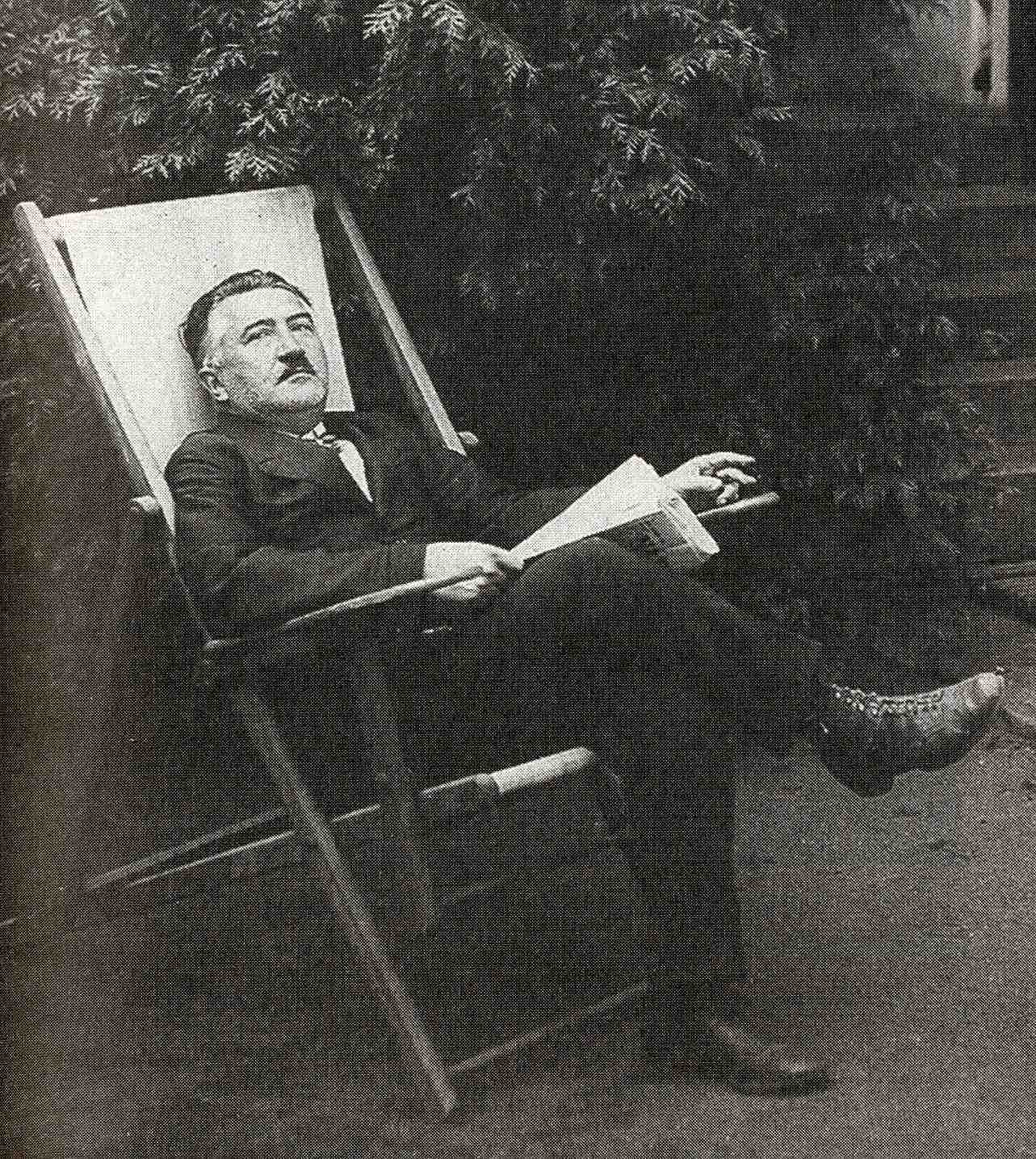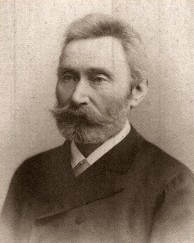|
Serenade For Strings (Suk)
Josef Suk's Serenade for Strings in E flat major, Op. 6, was composed in 1892. While Suk was studying under Antonín Dvořák at the Prague Conservatory, Dvořák noticed a melancholy strain in much of Suk's music, and recommended he try writing some lighter and more cheerful music. Based on Dvořák's suggestion, Suk produced the ''Serenade for Strings''. Two movements were publicly conducted by Suk in late 1893 in Tábor. The first complete performance was on 25 February 1895, at the Prague Conservatory, conducted by Antonín Bennewitz, Suk's violin teacher at the Conservatory. The Serenade soon brought Suk considerable fame and Dvořák's longtime supporter, Johannes Brahms Johannes Brahms (; 7 May 1833 – 3 April 1897) was a German composer, pianist, and conductor of the mid- Romantic period. Born in Hamburg into a Lutheran family, he spent much of his professional life in Vienna. He is sometimes grouped wit ..., endorsed its publication. Structure The serena ... [...More Info...] [...Related Items...] OR: [Wikipedia] [Google] [Baidu] |
Josef Suk (composer)
Josef Suk (4 January 1874 – 29 May 1935) was a Czech composer and violinist. He studied under Antonín Dvořák, whose daughter he married. Biography From a young age, Josef Suk (born in Křečovice, Bohemia) was deeply involved and well trained in music. He learned organ, violin, and piano from his father, Josef Suk Sr., and was trained further in violin by the Czech violinist Antonín Bennewitz. His theory studies were conducted with several other composers including Josef Bohuslav Foerster, Karel Knittl, and Karel Stecker. He later focused his writing on chamber works under the teachings of Hanuš Wihan. Despite extensive musical training, his musical skill was often said to be largely inherited. Though he continued his lessons with Wihan another year after the completion of his schooling, Suk's greatest inspiration came from another of his teachers, Czech composer Antonín Dvořák.Tyrell, Grove. Page 1 Known as one of Dvořák's favorite pupils, Suk also became personally ... [...More Info...] [...Related Items...] OR: [Wikipedia] [Google] [Baidu] |
Antonín Dvořák
Antonín Leopold Dvořák ( ; ; 8 September 1841 – 1 May 1904) was a Czechs, Czech composer. Dvořák frequently employed rhythms and other aspects of the folk music of Moravian traditional music, Moravia and his native Bohemia, following the Romantic-era Czech nationalism, nationalist example of his predecessor Bedřich Smetana. Dvořák's style has been described as "the fullest recreation of a national idiom with that of the symphonic tradition, absorbing folk influences and finding effective ways of using them". Dvořák displayed his musical gifts at an early age, being an apt violin student from age six. The first public performances of his works were in Prague in 1872 and, with special success, in 1873, when he was 31 years old. Seeking recognition beyond the Prague area, he submitted a score of his Symphony No. 1 (Dvořák), First Symphony to a prize competition in Germany, but did not win, and the unreturned manuscript was lost until it was rediscovered many decades ... [...More Info...] [...Related Items...] OR: [Wikipedia] [Google] [Baidu] |
Prague Conservatory
The Prague Conservatory or Prague Conservatoire ( cs, Pražská konzervatoř) is a music school in Prague, Czech Republic, founded in 1808. Currently, Prague Conservatory offers four or six year study courses, which can be compared to the level of high school diploma in other countries. Graduates of Prague Conservatory can continue their training by enrolling in an institution that offers undergraduate education. History The Prague Conservatory was founded in 1808 by local aristocrats and burghers following examples of Conservatoire de Paris (est. 1795) and Milan Conservatory (est. 1807). It belongs to the oldest modern existing Music school, music conservatories in the world. Classes started in 1811, after a delay caused by the Napoleonic Wars. Bedřich Diviš Weber was appointed the first director of the school. In 1891, Antonín Dvořák joined the faculty as the head of the composition department. He was the school's director between 1901 and 1904. Dvořák's students inc ... [...More Info...] [...Related Items...] OR: [Wikipedia] [Google] [Baidu] |
Tábor
Tábor (; german: Tabor) is a town in the South Bohemian Region of the Czech Republic. It has about 33,000 inhabitants. The town centre is well preserved and is protected by law as an urban monument reservation. Administrative parts The following villages are administrative parts of Tábor: *Čekanice *Čelkovice *Hlinice *Horky *Klokoty *Měšice *Náchod *Smyslov *Stoklasná Lhota *Větrovy *Všechov *Zahrádka *Záluží *Zárybničná Lhota Etymology Although the town's Czech name translates directly to "camp" or "encampment", these words were derived from the Tábor's name, and the town was named after the biblical Mount Tabor located in Israel. The town also gave its name to the Taborites, a radical wing of the Hussites. Tábor was initially called ''Hradiště hory Tábor'' ("fortified settlement of the Tábor mountain"). Geography Tábor lies south of the capital Prague, north of the regional capital České Budějovice. It lies on the river Lužnice. Tábor is l ... [...More Info...] [...Related Items...] OR: [Wikipedia] [Google] [Baidu] |
Antonín Bennewitz
Antonín Bennewitz (also Anton Bennewitz; 26 March 1833 – 29 May 1926) was a Bohemian violinist, conductor and teacher. He was in a line of violinists that extended back to Giovanni Battista Viotti, and forward to Jan Kubelík and Wolfgang Schneiderhan (violinist), Wolfgang Schneiderhan. He was born in Přívrat, Bohemia as Antonín Benevic (his name is most often seen in a German rendering, Bennewitz) to a German father and a Czech mother. He studied under Moritz Mildner :ru:Мильднер, Мориц, (Мильднер, Мориц) (Mořic Mildner: 1812-1865) at the Prague Conservatory from 1846-52. He then worked in Prague (where he was engaged as first violinist of the Estates Theatre (1852-1861)), Salzburg and Stuttgart. In 1859 he performed in Paris and Brussels. It was during this period that on 3 December 1855 he participated in the first performance of Bedřich Smetana’s Piano Trio in G minor, Op. 15, in the Prague Konvict Hall, with Smetana himself as pianist and J ... [...More Info...] [...Related Items...] OR: [Wikipedia] [Google] [Baidu] |
Johannes Brahms
Johannes Brahms (; 7 May 1833 – 3 April 1897) was a German composer, pianist, and conductor of the mid- Romantic period. Born in Hamburg into a Lutheran family, he spent much of his professional life in Vienna. He is sometimes grouped with Johann Sebastian Bach and Ludwig van Beethoven as one of the "Three Bs" of music, a comment originally made by the nineteenth-century conductor Hans von Bülow. Brahms composed for symphony orchestra, chamber ensembles, piano, organ, violin, voice, and chorus. A virtuoso pianist, he premiered many of his own works. He worked with leading performers of his time, including the pianist Clara Schumann and the violinist Joseph Joachim (the three were close friends). Many of his works have become staples of the modern concert repertoire. Brahms has been considered both a traditionalist and an innovator, by his contemporaries and by later writers. His music is rooted in the structures and compositional techniques of the Classical masters. Emb ... [...More Info...] [...Related Items...] OR: [Wikipedia] [Google] [Baidu] |
Movement (music)
A movement is a self-contained part of a musical composition or musical form. While individual or selected movements from a composition are sometimes performed separately as stand-alone pieces, a performance of the complete work requires all the movements to be performed in succession. A movement is a section Section, Sectioning or Sectioned may refer to: Arts, entertainment and media * Section (music), a complete, but not independent, musical idea * Section (typography), a subdivision, especially of a chapter, in books and documents ** Section sig ..., "a major structural unit perceived as the result of the coincidence of relatively large numbers of structural phenomena". Sources Formal sections in music analysis {{music-stub ... [...More Info...] [...Related Items...] OR: [Wikipedia] [Google] [Baidu] |
Compositions By Josef Suk
Composition or Compositions may refer to: Arts and literature *Composition (dance), practice and teaching of choreography * Composition (language), in literature and rhetoric, producing a work in spoken tradition and written discourse, to include visuals and digital space * Composition (music), an original piece of music and its creation *Composition (visual arts), the plan, placement or arrangement of the elements of art in a work * ''Composition'' (Peeters), a 1921 painting by Jozef Peeters *Composition studies, the professional field of writing instruction * ''Compositions'' (album), an album by Anita Baker *Digital compositing, the practice of digitally piecing together a video Computer science *Function composition (computer science), an act or mechanism to combine simple functions to build more complicated ones * Object composition, combining simpler data types into more complex data types, or function calls into calling functions History *Composition of 1867, Austro-Hungari ... [...More Info...] [...Related Items...] OR: [Wikipedia] [Google] [Baidu] |
Serenades
In music, a serenade (; also sometimes called a serenata, from the Italian) is a musical composition or performance delivered in honor of someone or something. Serenades are typically calm, light pieces of music. The term comes from the Italian word , which itself derives from the Latin . Sense influenced by Italian ''sera'' "evening," from Latin ''sera'', fem. of ''serus'' "late." Early serenade music In the oldest usage, which survives in informal form to the present day, a serenade is a musical greeting performed for a lover, friend, person of rank or other person to be honored. The classic usage would be from a lover to his lady love through a window. It was considered an evening piece, one to be performed on a quiet and pleasant evening, as opposed to an aubade, which would be performed in the morning. The custom of serenading in this manner began in the Medieval era, and the word "serenade" as commonly used in current English is related to this custom. Music performed foll ... [...More Info...] [...Related Items...] OR: [Wikipedia] [Google] [Baidu] |
Compositions For String Orchestra
Composition or Compositions may refer to: Arts and literature *Composition (dance), practice and teaching of choreography *Composition (language), in literature and rhetoric, producing a work in spoken tradition and written discourse, to include visuals and digital space *Composition (music), an original piece of music and its creation *Composition (visual arts), the plan, placement or arrangement of the elements of art in a work * ''Composition'' (Peeters), a 1921 painting by Jozef Peeters *Composition studies, the professional field of writing instruction * ''Compositions'' (album), an album by Anita Baker *Digital compositing, the practice of digitally piecing together a video Computer science *Function composition (computer science), an act or mechanism to combine simple functions to build more complicated ones *Object composition, combining simpler data types into more complex data types, or function calls into calling functions History *Composition of 1867, Austro-Hungarian/ ... [...More Info...] [...Related Items...] OR: [Wikipedia] [Google] [Baidu] |
1892 Compositions
Year 189 ( CLXXXIX) was a common year starting on Wednesday (link will display the full calendar) of the Julian calendar. At the time, it was known as the Year of the Consulship of Silanus and Silanus (or, less frequently, year 942 '' Ab urbe condita''). The denomination 189 for this year has been used since the early medieval period, when the Anno Domini calendar era became the prevalent method in Europe for naming years. Events By place Roman Empire * Plague (possibly smallpox) kills as many as 2,000 people per day in Rome. Farmers are unable to harvest their crops, and food shortages bring riots in the city. China * Liu Bian succeeds Emperor Ling, as Chinese emperor of the Han Dynasty. * Dong Zhuo has Liu Bian deposed, and installs Emperor Xian as emperor. * Two thousand eunuchs in the palace are slaughtered in a violent purge in Luoyang, the capital of Han. By topic Arts and sciences * Galen publishes his ''"Treatise on the various temperaments"'' (aka ... [...More Info...] [...Related Items...] OR: [Wikipedia] [Google] [Baidu] |





